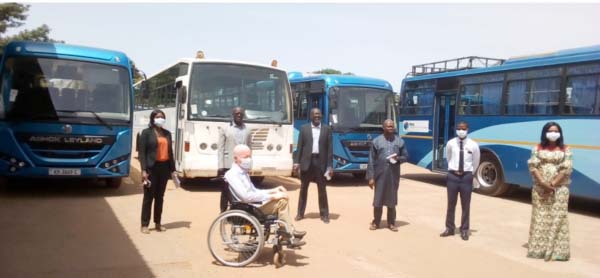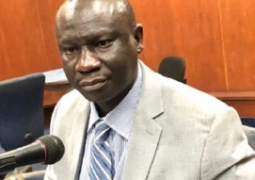
The buses are deployed at busy and urban areas especially during peak hours with a move to address the daily suffering faced by commuters from both formal and informal sectors. In addition, these new fleet of buses cater for all travelers including the physically challenged.
The government of The Gambia recently ordered drivers to carry half their normal capacity in a bid to curb the spread of coronavirus. However, this move didn’t go down well with some drivers, who opted to park their vehicles thus causing shortage of vehicles amid high demand.
At a press briefing held at GTSC headquarters in Kanifing on Tuesday, Seedy Kanyi, General Manager of Gambia Transport Service Company explained that the move to roll out new buses is in response to public demand.
Kanyi stated that Covid-19 has affected everybody globally, adding that GTSC as a company has been responding proactively even before government announced declaring the state of public emergency by advising their staff to ensure that their buses are not crowded, running at 50 percent capacity.
He added that they bought and stationed buckets and sanitary materials at all their depots countrywide, partnered with The Gambia Red Cross Society to re-enforce their bus cleaning and daily fumigating; all geared towards curbing the spread of the deadly disease.
He observed that the demand for public transport has gone down since the outbreak of the disease with Government’s directive for all commercial vehicles to run at half capacity, which he said, has vastly affected transport operator’s revenue base.
According to him, the company currently generates about 30 percent of its daily projected revenue, which he said, is very low for but they have to struggle with it.
“We have an arm of responsibility to protect public interest, as we are not all out about making money as the company belongs to Gambian workers”.
He however, clarified that their fares have not been adjusted even though the demand has gone down and operating at half capacity.
Reducing pump price by just one dalasi, he observed, is not significant at all because cost of a barrel of oil has drastically gone down globally and nothing should stop Gambian authorities from further reducing the fuel price to make up for the revenue gap created by government directive to reduce passage capacity by half.


